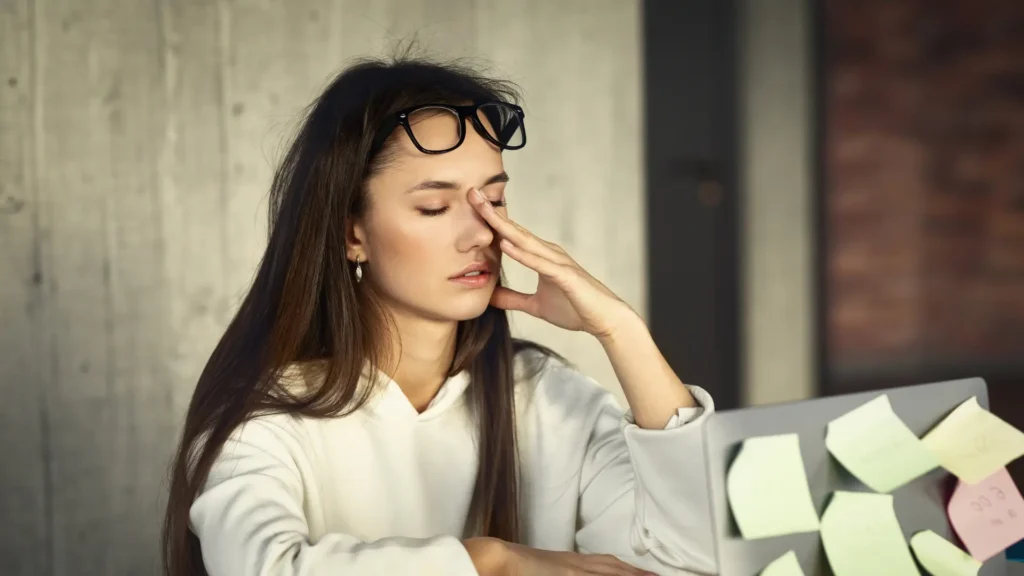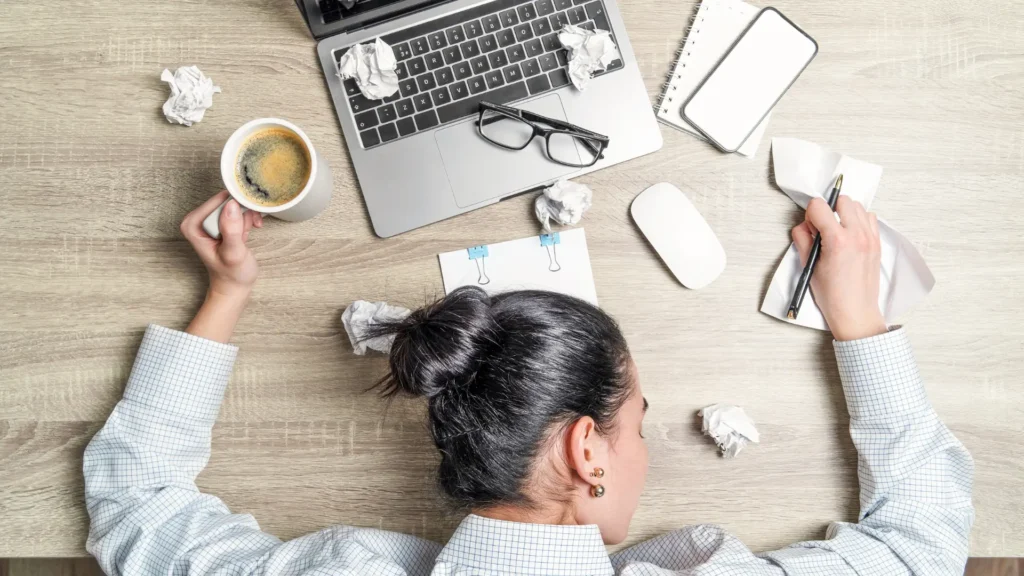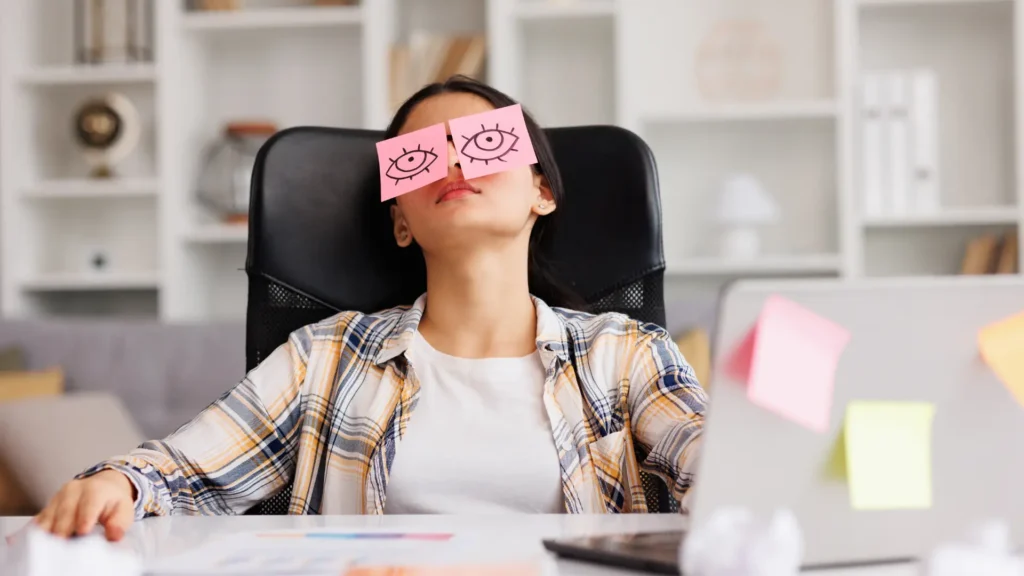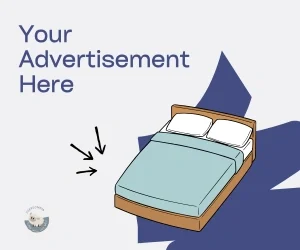I’ll admit it—nights used to be my escape, until they weren’t. Waking up gasping for air, feeling exhausted despite “sleeping,” and battling a constant knot of tension became my norm.
That’s when I learned about sleep apnea and stress, two silent culprits that were wreaking havoc on my life.
Sleep apnea is a disorder where breathing stops and starts during sleep, often without you even realizing it.
Pair that with stress, and you’ve got a recipe for restless nights and frazzled days. After diving into research and talking to experts, I discovered how deeply these two are intertwined—stress can worsen sleep apnea, and sleep apnea can amplify stress.
In this article, I’ll share what I’ve learned about this exhausting connection, how it affects us, and what we can do to fight back. If you’re tired of feeling tired, stick with me—we’re in this together.
What is Sleep Apnea? What are it’s Symptoms?

When I first started waking up feeling like I’d run a marathon in my sleep, I had no idea what was going on. That’s when I stumbled across sleep apnea—a condition that’s more common than I’d thought. From what I’ve learned, sleep apnea comes in two main forms:
- obstructive, where your airway gets blocked, and
- central, where your brain forgets to tell your body to breathe.
For me, it was the obstructive kind, and let me tell you, the symptoms were no picnic. Loud snoring (my partner can vouch for that), gasping for air in the middle of the night, and dragging myself through the day half-awake became my reality. Even worse, I noticed how sleep apnea and stress started feeding into each other—those restless nights left me anxious and on edge, which only made falling asleep harder.
I’ve dug into the science a bit, and experts say these symptoms aren’t just annoying—they’re red flags. The constant interruptions in breathing mess with your oxygen levels, leaving you tired, foggy-headed, and even moody.
Left unchecked, it can strain your heart and mind, too. After living through it and researching alongside professionals’ advice, I can say this: recognizing these signs was my first step to understanding how deeply sleep apnea and stress were affecting me. If any of this sounds familiar, trust me—you’re not alone, and it’s worth paying attention to.
Can Stress Cause Sleep Apnea?

Stress doesn’t directly cause sleep apnea the way a blocked airway does, but it sure sets the stage. I learned from digging into resources that chronic stress can tighten your muscles, even the ones around your throat, making it easier for breathing to falter at night. For me, that made sense; I’d feel my jaw clench after a rough day, and next thing I knew, I’d be jolted awake, heart pounding.
Experts say it’s more like stress amplifies the risk, especially if you’re already prone to sleep apnea. I’m no sleep doctor, but seeing how my own stress fueled those breathless nights convinced me there’s a real link worth taking seriously.
The Feedback Loop
The relationship between sleep apnea and sleep is a vicious cycle. When I’m stressed, my sleep quality plummets, and sleep apnea becomes more pronounced. This poor sleep then feeds back into my stress levels, creating a feedback loop that’s hard to break. The more stressed I am, the worse my sleep apnea gets, and the worse my sleep apnea, the more stressed I become.
Impact on Daily Life
This cycle doesn’t just affect my nights; it spills over into my days. I find myself more anxious, easily irritated, and struggling to focus on tasks. It’s like my brain is constantly on high alert, unable to relax even when I’m not actively stressed.
Long-Term Risks
Over time, this relentless cycle of sleep apnea and stress can take a toll on your health. Studies show that there is an increased risk of heart disease, as the strain on thecardiovascular system from both sleep apnea and stress can lead to hypertension and other heart-related issues. Depression is another concern; the constant fatigue and the feeling of being overwhelmed can push anyone towards a darker mental state.
How can Sleep Apnea and Stress be Treated?

Combining small, consistent habits creates the biggest ripple effects. For example, I start my mornings with diaphragmatic breathing—placing one hand on my chest, the other on my belly, and inhaling deeply until my ribcage expands. Studies show this strengthens respiratory muscles and lowers cortisol levels. Patients who adopt this often report fewer nighttime awakenings within weeks.
Exercise isn’t just about weight loss—though that helps. I’ve observed that even light resistance training reduces sleep apnea severity by toning upper airway muscles. One patient swapped evening screen time for 20-minute yoga sessions focused on throat-opening poses (like fish pose), cutting her apnea episodes by 30% in two months.
Sleep Hygiene matters deeply. I advise against eating within three hours of bedtime—digestion competes with airway stability—and recommend side-sleeping with a wedge pillow. One man in this study used a tennis ball sewn into his pajama back to train himself off supine sleeping; his AHI dropped from 25 to 12.
When Lifestyle Isn’t Enough, Medical Solutions may be needed. CPAP machines remains my frontline weapon for moderate-severe cases, but adherence is key. For example one woman hated her nasal mask until we switched to a hybrid model covering her mouth. Now she sleeps through the night, and her morning blood pressure readings normalized.
For those resisting CPAP, oral appliances like mandibular advancement devices can be game-changers. In this study, a guitarist who couldn’t tolerate masks; his device not only improved apnea but reduced TMJ pain through overnight jaw alignment.
Stress Management using Cognitive behavioral therapy for insomnia (CBT-I) is another approach. One executive with treatment-resistant apnea discovered his 3 AM awakenings stemmed from work anxiety. Through CBT-I’s stimulus control techniques and “worry time” journaling pre-bed, his sleep efficiency jumped from 65% to 85%.
Progressive muscle relaxation is also often prescribed and is paired with biofeedback. A nurse with PTSD-related apnea uses a heart rate variability monitor during evening sessions; her LF/HF ratio (stress indicator) dropped from 4.2 to 1.8 in six week.
The magic happens when combining a few of these methods. A patient who combined CPAP with evening legs-up-the-wall yoga pose (enhancing venous return) and a magnesium glycinate supplement. Her Epworth Sleepiness Scale score fell from 16 to 6 in 90 days—proof that holistic management outpaces single solutions.
When should you seek help for Sleep Apnea and Stress?
When Your Body Sounds the Alarm
Alot of us brush off snoring as “normal” or blame fatigue on a busy schedule—until their partner notices they stop breathing at night. Let me be clear: gasping for air during sleep isn’t a quirk—it’s a medical SOS. If you’re waking up with headaches thicker than morning fog or nodding off at red lights despite “enough” sleep, your body’s begging for intervention. Combine that with stress symptoms like clenched-jaw mornings or a racing heart over minor frustrations, and you’ve got a tandem crisis demanding attention.
Sleep Apnea Pillows
I’ve found that sleep apnea pillows can be a game-changer for managing symptoms. These pillows are crafted to promote side sleeping, which helps keep my airway open by aligning my neck and head in a way that reduces the chance of obstruction. They often come with memory foam or adjustable features to support my neck just right. While they’re not a cure-all, they’ve definitely made a difference in my sleep quality, especially when I use them alongside my CPAP or oral appliance.
A 2024 Journal of Clinical Sleep Medicine study followed undiagnosed OSA patients for 5 years. Those who delayed care had:
- 2.3x higher heart failure risk
- 68% more depressive episodes
- 41% greater likelihood of job loss from cognitive fog
Don’t be that statistic. If your Fitbit shows restless sleep paired with a stress-tracking app’s red alerts, it’s not “burnout”—it’s biology screaming for help.
Treatment’s come a long way; oral appliances now sync with apps to track snore decibels, and CBT-I apps like Sleepio can break the insomnia-stress loop in weeks.
Your next step? Breathe.



